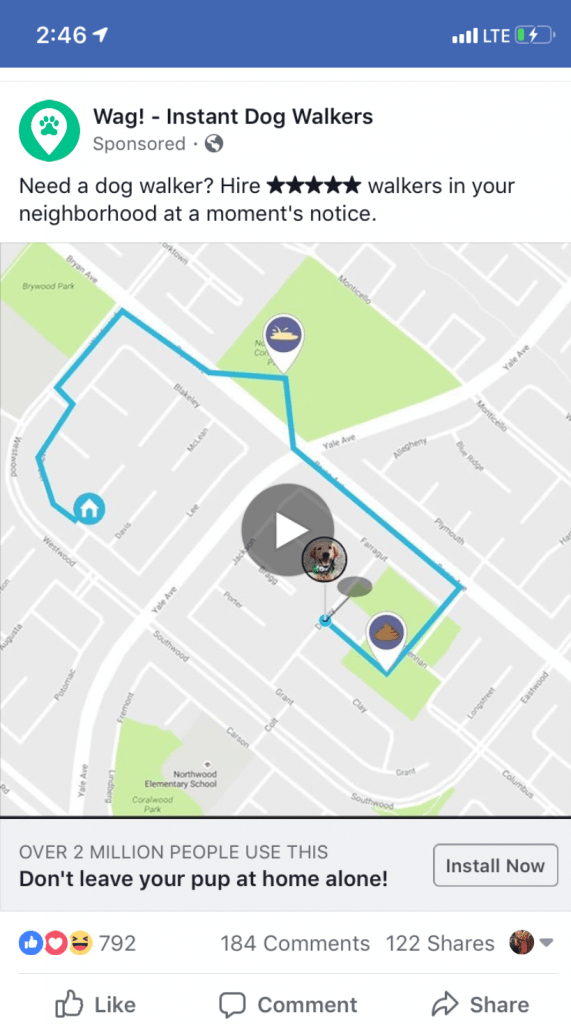Why Are These Security Cameras Being Banned?
[et_pb_section fb_built=”1″ _builder_version=”3.0.47″ custom_padding=”17px|0px|29px|0px|false|false”][et_pb_row custom_padding=”17px|0px|13px|0px|false|false” _builder_version=”3.0.48″ background_size=”initial” background_position=”top_left” background_repeat=”repeat”][et_pb_column type=”4_4″ _builder_version=”3.0.47″][et_pb_text _builder_version=”3.21.4″]
Cameras from the companies Dahua and Hikvision are commonly used surveillance cameras in the United States. They’re found everywhere from government buildings and corner stores to office buildings, and they’re popular for their ability to produce sharp images even in conditions of almost total darkness.
So why are they being banned? And how can you properly secure your own business without risking unwanted Chinese interference?
The H.R. 5515 Bill
Back in August 2018, the 2019 National Defense Authorization Act (NDAA) was signed into law, which included part of H.R. 5515, a bill that banned governmental use of surveillance cameras produced by Dahua and Hikvision.
The Dahua and Hikvision Cameras were banned citing “risky technology” that was “linked to the Chinese Communist Party’s intelligence apparatus”.
In other words, the government is concerned that cameras from the two brands were being used to collect sensitive information about both public and government systems and locations. As reported by Bloomberg, a secret backdoor channel was found in certain Dahua cameras in 2017, and many other cameras from the company reportedly contain the exact same backdoor.
New Laws Moving Foward
The new law bans the use of Dahua and Hikvision Cameras for government-funded contracts, use in national security contexts, and installation at critical infrastructure. The law will go into effect in August 2019, although in reality many companies have already cut ties from these potentially dangerous devices.
The law may even have an impact far beyond the borders of the United States, as the US frequently provides cameras from both Hikvision and Dahua to other countries for use in their security systems.
Yet the United States isn’t the only country to act on its misgivings about cameras from Dahua and Hikivision. In September of last year, the Australian Strategic Policy Institute expressed its distrust of the security cameras, stating that “having these sorts of cameras in secure facilities just doesn’t make any sense.” Around the same time, Austrialia’s ABC news reported that the cameras were likely being used to conduct spying operations within Australia.
What Happens Now to Dahua and Hikvision?
Currently, Hikvision and Dahua maintain offices in North America, and as recently as April the companies showed off their cloud-based video products at a major security industry tradeshow, ISC West.
According to Bloomberg, the ban has already substantially cut sales of Hikvision products in the US. While the law only applies to government and government-contracted installations and systems, public companies are also wary of using the devices. It remains to be seen how the ban of their cameras will affect the willingness of public companies to do business with them moving forward.
Choosing a Better Security Camera System
Your best bet? Choose a security camera and surveillance brand that offers reliable, trusted security.
If you already have Hikvision or Dahua cameras installed throughout your enterprise, we recommend taking the following steps to review security and identify potential risks:
- Conduct a full audit to determine your use of Hikvision and Dahua cameras
- Consider how much a wider ban of Hikvision and Dahua cameras would impact your operations, including the cost and downtime of replacing all these devices
- Analyze the IT budget to determine whether moving to a different provider is feasible over either the short and longer term
If your enterprise hasn’t yet implemented your video surveillance system, it’s not too late to make the right choices.
- Look for vendors that are neither based in China nor manufacture in the nation
- Look for vendors that place a large priority on cybersecurity including:
- End-to-End encryption of footage in transit and at rest
- Architecting cameras that only send outbound protocols
- Auto-updating software and firmware regularly
For a more in-depth breakdown of how to maximize your video surveillance security, click here to read the free Totality Solutions ebook “How Secure is your Video Surveillance.”
Sources:
https://ipvm.com/reports/us-house-5515
https://ipvm.com/reports/ban-law
[/et_pb_text][et_pb_button button_url=”https://totalitysolutions.org/services/cctv/verkada-security-cameras/webinars/” button_text=”Free Webinar: Intro to Cloud Security” button_alignment=”center” _builder_version=”3.19.11″ custom_button=”on” button_text_color=”#ffffff” button_bg_color=”#6eba01″ button_border_color=”#6eba01″ button_text_color_hover=”#6eba01″ button_text_size__hover_enabled=”off” button_one_text_size__hover_enabled=”off” button_two_text_size__hover_enabled=”off” button_text_color__hover_enabled=”on” button_text_color__hover=”#6eba01″ button_one_text_color__hover_enabled=”off” button_two_text_color__hover_enabled=”off” button_border_width__hover_enabled=”off” button_one_border_width__hover_enabled=”off” button_two_border_width__hover_enabled=”off” button_border_color__hover_enabled=”off” button_one_border_color__hover_enabled=”off” button_two_border_color__hover_enabled=”off” button_border_radius__hover_enabled=”off” button_one_border_radius__hover_enabled=”off” button_two_border_radius__hover_enabled=”off” button_letter_spacing__hover_enabled=”off” button_one_letter_spacing__hover_enabled=”off” button_two_letter_spacing__hover_enabled=”off” button_bg_color__hover_enabled=”off” button_one_bg_color__hover_enabled=”off” button_two_bg_color__hover_enabled=”off”][/et_pb_button][/et_pb_column][/et_pb_row][/et_pb_section]




